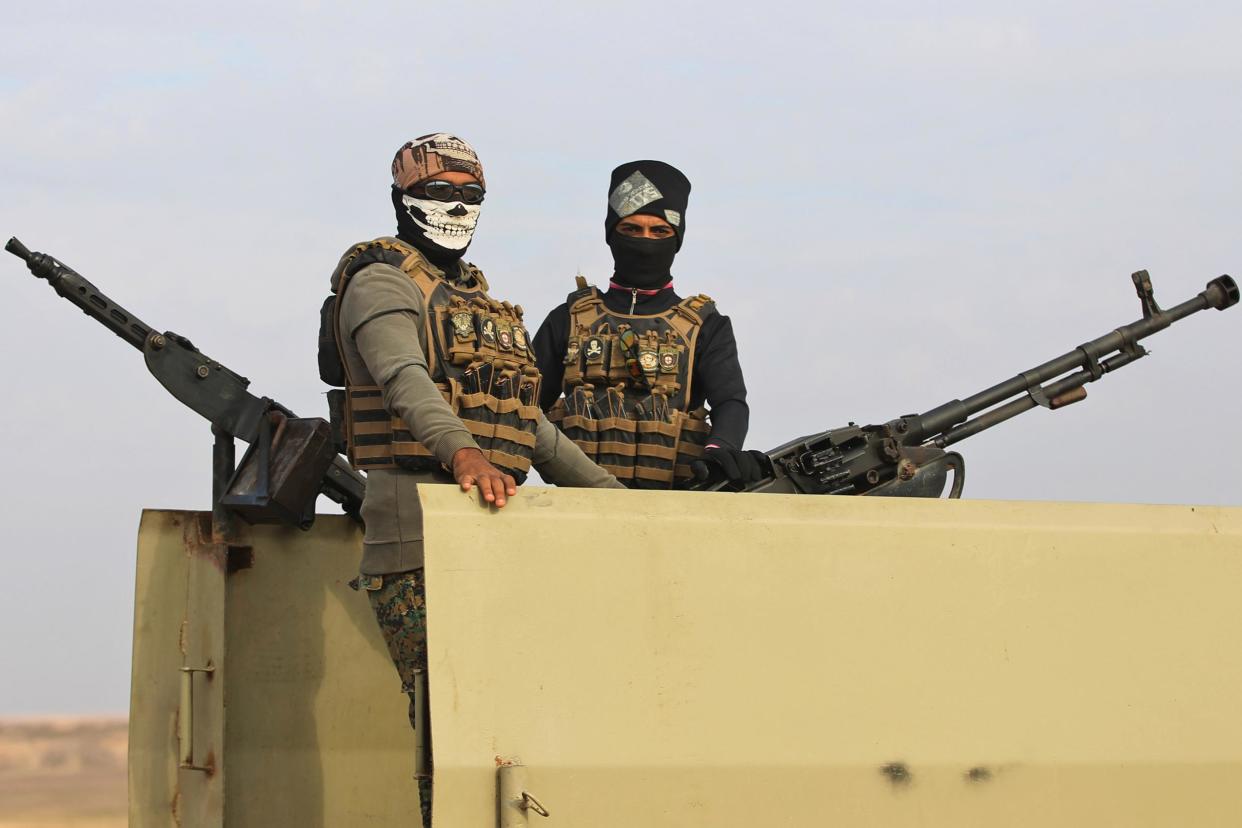The Reader: Consequences of the Iraq War are still felt

GEORGE Osborne’s observation that “the failure to find weapons of mass destruction, the chaos and killing that followed, did set the course of international politics for a generation” is telling [“Seeing Iraq’s suffering reminds me why there is no excuse for inaction,” November 5].
If the Iraq invasion of 2003 had not happened, would we have had Brexit, Donald Trump and the war in Syria and much more, I wonder? While we had tragedies and wars before that time, including 9/11, might the consequences of this poorly conceived invasion — with the consequent destablising of the area and increase in migrants fleeing the region — mean that the immigration problems we have now might be more contained?
Gavin Robinson
EDITOR'S REPLY
Dear Gavin
YOU raise a good question, to which we will never know the answer. I think it’s pretty hard to link directly the Iraq War to Donald Trump; after all, Americans have managed to re-elect George W Bush and then Barack Obama twice before the current President turned up.
Equally, it was the other leading EU members, France and Germany, who opposed the invasion of Iraq. There’s a much stronger case that the fall of Saddam Hussein was connected to the uprisings in Egypt, Libya, Syria and Tunisia. But at the time most people welcomed them, and called them the Arab Spring.
It was the civil war that followed in Syria that led to the big flows of refugees that have so destabilised our continent and its politics. But it was the memories of the invasion in Iraq that prevented the West intervening to stop it.
George Osborne, Editor
Kipling’s message still rings so true
Some Conservatives seem to have forgotten their Rudyard Kipling. He was acutely aware of this island’s dependence on shipping, and even with air traffic and the Channel Tunnel it remains as true today. Just one example is this verse:
Such as in Ships and brittle Barks/ Into the Seas descend/Shall learn how wholly on those Arks/ Our Victuals do depend.
Elsewhere, in a taunting mood, Kipling predicts that prolonged isolation would lead to outbreaks of cannibalism.
Andrew Colvin
Indian PM Modi is not divisive
IT SEEMS Dr Vadgama has an issue with Narendra Modi, as she refers to him as “BJP man, Modi” [“Tallest statue does hero no honour”, November 6]. Does she not know that Mr Modi is Prime Minister of India?
The supporters of Sardar Patel should be delighted that while his own party, ie: Congress, failed to do anything during all its years in power, the BJP has honoured Patel with a statue within five years of getting elected. It is wholly inaccurate, too, to say that Modi is creating “religious divisions between Hindus and Muslims in India”.
Sunil Kumar Pal
Night culture is lost on much of London
Ross Lydall’s report [“Nightlife ‘too pricey’ for third of Londoners,” November 8] states that despite London being a “city of night owls”, some town centres “do not have a cinema or theatre, and there has been a fall in pubs, clubs and music venues”. To the best of my knowledge there is an entire borough — Lewisham — that does not currently have a cinema.
Mark Thomas

 Yahoo News
Yahoo News 
